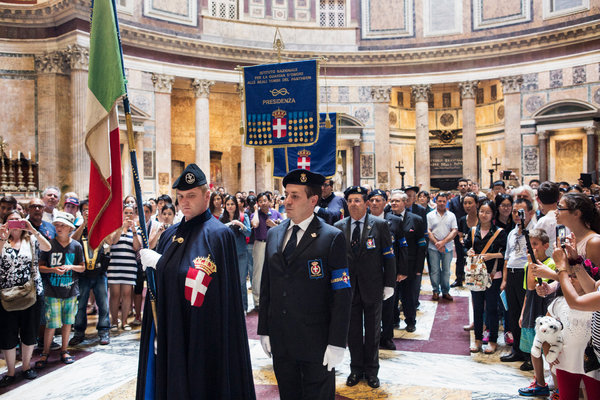ROME — For 136 years, the Honor Guard to the Royal Tombs of the Pantheon has stood watch over the mortal remains of the Savoy kings who formerly ruled Italy, paying a discreet, sober tribute to a once-powerful dynasty in recognition of its role in unifying the country.

King Vittorio Emanuele II, who died in 1878, played an essential part in founding modern Italy, and his memorial at the Pantheon in Rome is dedicated to the "Father of the Homeland." It also houses Umberto I, who was assassinated in 1900. Umberto's wife, Queen Margherita of Savoy, is buried next to him.











